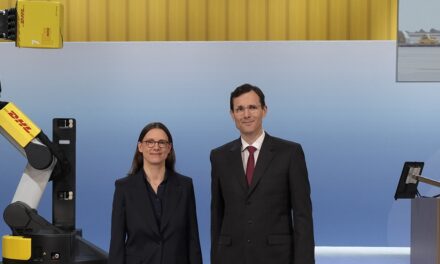
One-off gains help Deutsche Post deliver gains in 2000
Deutsche Post, the German postal and logistics group, on Friday reported better-than-expected 2000 earnings, but a close look revealed that gains largely stemmed from one-off effects and first-time consolidations.
The group said it was on track to meet its business plan for the year. “The first two months were exactly as we planned and for the next 10 months we are seeing sales and profits as planned too,” Klaus Zumwinkel, the chairman, said. Without giving a specific growth rate, Mr Zumwinkel said that that the signs of slowing economic growth were not affecting earnings. “There is no reason at all for us to revise our earnings expectations” He added: “It’s more likely the other way.”
Nevertheless, observers have doubts how much Deutsche Post can grow organically, particularly in potential high-growth sectors such as express and logistics. In 2000, express and logistics contributed a mere 7 per cent to the group’s operating profit.
Group operating profit rose 158 per cent to E2.3bn ($2.05bn) and sales rose 46 per cent to E32.7bn. Both figures were above analysts’ expectations. They include first-time consolidations of DSL Bank, international express service DHL International and others.
Analysts estimate that without acquisitions Deutsche Post’s group profit would have only risen about 10 per cent rather than 158 per cent. For example, the 770 per cent profit rise in financial services was mainly due to the incorporation of DSL Bank, while consolidation of DHL International boosted express services by 27 per cent. Without DHL, operating profit fell to E76m from E78m a year earlier.
“Express is supposed to be the growth area per se, but it is in fact the most disappointing area of all,” said Jurgen Pieper at Bankhaus Metzler.
Gains in Deutsche Post’s letter business, where profit rose almost 100 per cent to E2bn, largely stemmed from reduced pension payments following a legal change. Deutsche Post has a monopoly in private letters up to 200g.












